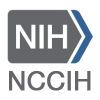NCCIH blogs about research developments related to complementary health practices. Check in regularly to keep up with the latest findings.
Tips for Writing Grant Applications
September 5, 2024
Wendy J. Weber, N.D., Ph.D., M.P.H.
Dr. Wendy Weber offers her top five tips for how to write an NIH grant application.
September 13 Council Meeting To Spotlight CARE for Health Network and NIH Nutrition Initiatives
August 19, 2024
Martina Schmidt, Ph.D.
Join us for the open session of the National Advisory Council for Complementary and Integrative Health (NACCIH) meeting on Friday, September 13, 2024, which will be livestreamed on NIH VideoCast from 10:40 a.m. to 4 p.m. ET.
Check Out Our New Video Library for Researchers
August 16, 2024
Wendy J. Weber, N.D., Ph.D., M.P.H.
A new resource for the complementary and integrative health research community—a video library where members of the National Center for Complementary and Integrative Health (NCCIH) program and review staff provide guidance on the grants process, funding opportunities, peer review, and mor
New Data Management and Sharing Reporting Requirement Starts October 1, 2024
July 29, 2024
Debbie Chen
As part of implementation of the Final NIH Policy for Data Management and Sharing (DMS), recipients of NIH grant awards must report on their progress on DMS activities in their Research Performance Progress Reports submitted on or after 10/01/2024.
Are You a Researcher Interested in NIH Student Loan Repayment Programs? Apply September 1–November 21, 2024
July 22, 2024
Jennifer Baumgartner, Ph.D.
Did you know that NIH may repay up to $100,000 of your qualified student loan debt over 2 years, including most undergraduate, graduate, and medical school loans? Read this blog post to learn more.
July 29 Lecture on Artificial Intelligence and Machine Learning To Explore Salutogenesis
July 9, 2024
NCCIH Research Blog Team
Join us for a lecture by Dr. Aaron Y. Lee, University of Washington, on the use of artificial intelligence (AI) and machine learning (ML) to analyze large sets of data to gain better understanding of the restoration of health (salutogenesis) and the development of disease (pathogenesis).
New Funding Opportunities for Mechanistic Research on Precision Probiotic Therapies
July 2, 2024
Hye-Sook Kim, Ph.D.
Learn about two new funding opportunities for research to accelerate the development of precision probiotics.
Changes to Institutional Training Grant Applications To Support Biomedical Workforce, Discovery
June 28, 2024
Jessica McKlveen, Ph.D.
Changes are coming to NIH Institutional Training Award grant applications and their peer review for applications due on or after January 25, 2025. Dr. Jessica McKlveen provides background, summarizes the changes, and gives resources for more details.
Reissued Funding Opportunity To Support Virtual Resource Centers for REsearch Across Complementary and Integrative Health Institutions (REACH)
June 5, 2024
Lanay M. Mudd, Ph.D.
Learn about a funding opportunity to support virtual resource centers that will foster institutional partnerships and provide resources to support research activities and training at partnering U.S. domestic complementary and integrative health institutions. Register for the webinar on June 18, 2024.
It’s Official! Changes in Fellowship Processes Are Taking Effect
June 3, 2024
Jessica McKlveen, Ph.D.
Dr. Jessica McKlveen, National Center for Complementary and Integrative Health, outlines changes that are official as of April 18, 2024, to the National Institutes of Health's fellowship application and review process for fellowship applications with receipt dates of January 25, 2025, and beyond. In addition to a summary, she provides links to webpages, a webinar, and other resources for more details or asking questions.







